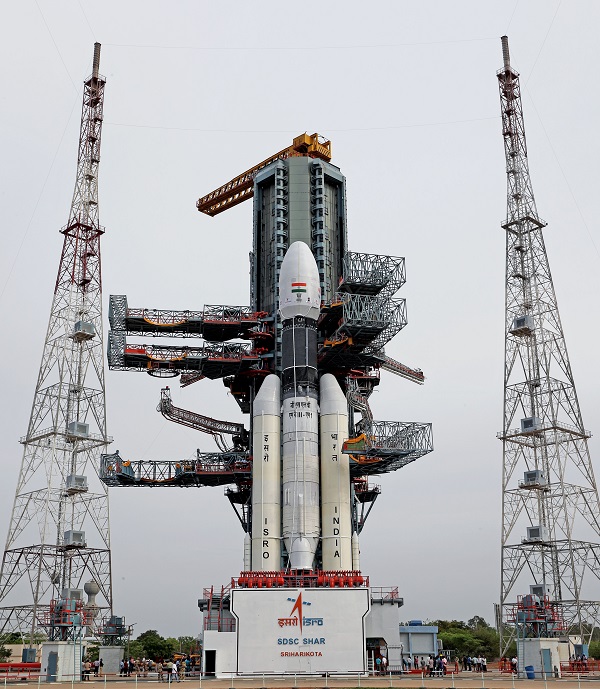Chennai, (Asian independent) Come this October India will put one more of its rockets — the medium lift Geosynchronous Satellite Launch Vehicle-Mark III (GSLV MkIII) — into the commercial launch market.
Since 1999, India has launched 345 foreign satellites belonging to 36 countries using its Polar Satellite Launch Vehicle (PSLV) rocket.
Sometime during the third week of October 2022, Indian Space Research Organisation’s (ISRO) rocket GSLV MkIII will fly with 36 satellites of OneWeb, an Indo-UK joint venture satellite communications company, said an Indian space sector official.
“The total launch mass will be six ton,” the official told IANS.
The proposed mission has several firsts for the Indian space sector. They are: (a) The first commercial launch of GSLV MkIII (b) First time an Indian rocket will be ferrying a payload of about six ton (c) First time OneWeb is using an Indian rocket to put its satellites into orbit (d) First commercial launch of GSLV MkIII contracted by NewSpace India Ltd, the commercial arm of Indian space sector and (e) First time GSLV MkIII or its variants is being used for launching satellites in Low Earth Orbit (LEO).
Another set of 36 satellites from OneWeb is planned to be put into orbit in January 2023.
“One additional launch will take place this year and three more are targeted for early next year to complete the constellation,” OneWeb had said.
OneWeb, a joint venture between India Bharti Global and the UK government.
The satellite company plans to have a constellation of 650 satellites in low earth orbit to offer communication services.
The GSLV MkIII with a lift off mass of 640 ton is a three stage rocket powered by solid, liquid and cryogenic engines.
The rocket was designed to carry four ton satellites into Geosynchronous Transfer Orbit (GTO) and about 10 tons to LEO.
Meanwhile the first batch of 36 OneWeb satellites have reached the Indian rocket port at Sriharikota in Andhra Pradesh.
With this launch, OneWeb will have more than 70 per cent of its planned Gen 1 Low Earth orbit (LEO) constellation in orbit as it progresses to deliver high-speed, low-latency connectivity services around the world.
OneWeb plans to have a constellation of 650 satellites in LEO to offer communication services.
Bharti Enterprises, a major investor and shareholder in OneWeb, this year announced a distribution partnership with Hughes Communications India Private Ltd.
OneWeb will connect towns, villages and local and regional municipalities in the hardest-to-reach areas, thus playing a critical role in bridging the digital divide across India.
“Undertaking the launch of 36 OneWeb satellites on-board GSLV-MkIII from India is a historic moment for NSIL and ISRO. We are excited to see the arrival of the satellites and the ground support equipment in India in preparation for the launch. Teams at NSIL/ ISRO are sincerely working towards providing the best of the launch service solutions and support for OneWeb satellites, and we wish their teams great success in their forthcoming activities at SDSC-SHAR and launch,” Radhakrishnan D, Chairman-cum-Managing Director, NSIL, said.
Space sector experts had earlier told IANS that the US and Europe’s economic sanctions against Russia for its military action in Ukraine may throw up economic opportunities for the Indian space sector, instead of burdening it with economic cost.
They also said that to cash in on the opportunities, India should accelerate its satellite launch capabilities, and announce productivity-linked incentive (PLI) schemes for the aerospace sector.
The board of OneWeb voted to suspend satellite launches from the Baikonur rocket port in Russia.








